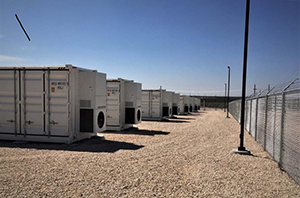There Should Be Limits to Yorktown’s Proposed Battery Storage Facilities Law

By Susan Siegel
Do industrial facilities belong in residential neighborhoods? Your neighborhood?
That’s the question that will be before the Yorktown Town Board at a public hearing on June 16.
The issue: A proposed amendment to the zoning code that would allow battery storage facilities in any zoning district, residential or commercial, on parcels at least 30,000 square feet with a special use permit issued by the Planning Board.
Battery storage facilities make sense. They can play a critical role in enabling New York to meet its ambitious energy goals. Instead of building new power plants to address peak demand, storage facilities take surplus electricity from the grid when demand is low and return the electricity to the grid at times of peak demand. Yorktown should permit them.
But where? In what zones? With what restrictions and conditions? Subject to which board’s approval?
As residents, property owners and concerned citizens, it may look like we’re faced with conflicting goals: supporting a smart energy policy or protecting our property values and quality of life. But the two goals don’t have to be in conflict. It’s possible to accomplish both – if our Town Board is open-minded and willing to explore and compare alternative zoning approaches for permitting battery storage facilities. To date, the board has only considered the single approach that’s been handed to it.
Battery storage facilities, powered by lithium batteries, vary in size and design but often look like rows of tractor-trailer storage containers.
Just as no two battery storage facilities are alike, no two undeveloped residentially zoned parcels are similar in size, location, proximity to other homes and the general character of the neighborhood. That’s why the decision to radically alter the use of a parcel from residential to industrial should be made on a case-by-case basis through the rezoning process.
But the proposed law would permit battery storage facilities on ANY parcel above a certain size, regardless of its location or the character of the surrounding neighborhood. And the only limitations on the facility would be what’s in the law. Those provisions may not provide sufficient protection for the neighborhood. Your neighborhood.
The same concern over allowing an industrial use in residential neighborhoods without rezoning the property was brought to the board’s attention last year when an initial draft of a solar law was the subject of a public hearing. At the time, residents supported the concept of solar farms, but expressed concern about allowing them in any residential neighborhood.
During the hearing, the board was asked to consider a case-by-case rezoning approach and three possible rezoning options were suggested. But the alternative options were never considered. There was never a discussion of the comparative advantages and disadvantages of case-by-case rezoning versus the “any parcel” approach.
If you have questions or concerns about the proposed battery storage law you need to speak up at the June 16 hearing. Because the hearing will be held under Zoom procedures, you’ll have to register in advance with the Town Clerk at dquast@yorktownny.org, notifying her of your desire to speak during the hearing; when the hearing begins, you’ll be unmuted.
Alternately, you can share your questions and/or concerns with members of the Town Board via e-mail. See the town’s website for their e-mail addresses.
Which approach makes sense to you? Is the proposed law the only way to permit battery storage facilities in Yorktown? The hearing is your opportunity to let the board know what you think. What do you want for your community? Your neighborhood? If they’ve considered any of the other approaches. If not, why not? And if they did, what’s their rationale for choosing the any parcel approach over rezoning?
Yorktown resident Susan Siegel is a former town supervisor.

